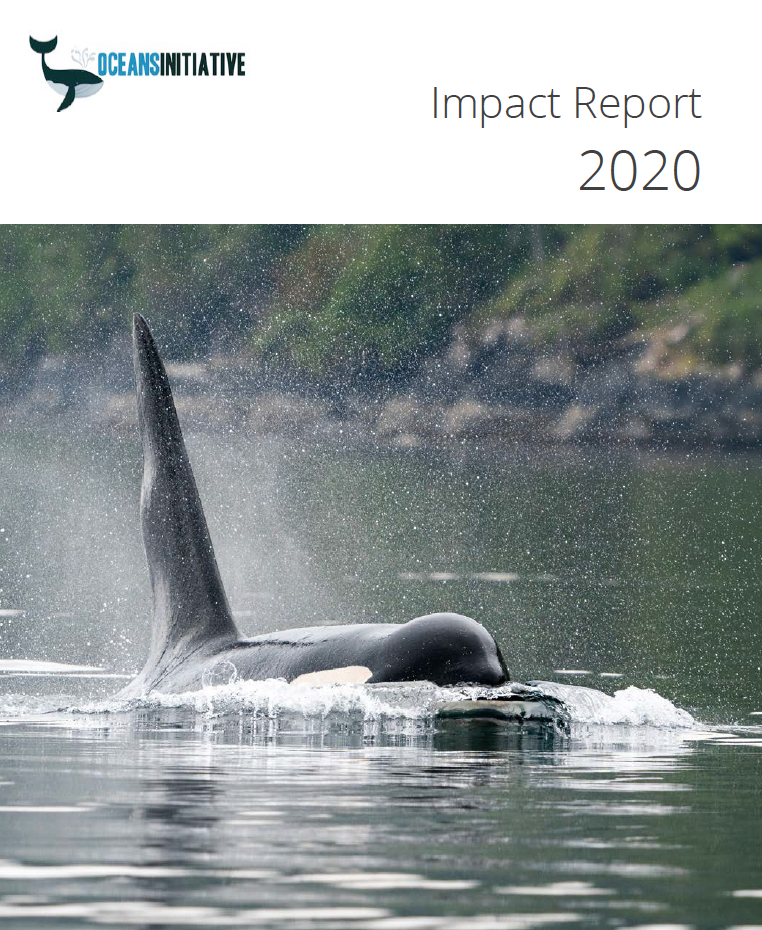By Dr. Rob Williams
Like the whales we study, the Oceans Initiative team is highly mobile and migratory. We divide our time between getting our feet wet in the field, wherever our work is needed, and using our science to inform smart decisions to conserve wildlife. Covid-19 required us to hit pause on most of our travel plans this year, but it was a bit of a treat. We slowed down, and tried to improve our local conservation impact. With all of the time we saved on travel, we took the time to look inward to think strategically about the kind of work we want to do in the coming years, when a vaccine is in widespread use.
We are proud of the real-world impact our conservation science has, but some of it can feel pretty abstract at times. After all, you can’t see noise in the ocean. It will take years before the orcas we study start to show us—through increased births and longer lifespans—that our efforts to protect the whales’ habitats are paying off. So it was a real joy this year to work on projects that use carefully engineered sound signals to scare seals away from eating endangered salmon. We could see the conservation benefit of our work in real life, in real time. Five years from now, we hope that the offspring of some of the Chinook salmon we helped make it to their spawning grounds return as prey for endangered orcas.
Of course, time is the constraint here. As we work to get the whales more salmon, and quiet enough conditions to hunt, climate change is making our job harder every year. In 2021, we are strengthening our work to climate-proof recovery of belugas, dolphins, killer whales, and marine predators around the world. Our work is showing that we can save species by removing as many stressors as we can now, in order to build their resilience to buffer effects of climate change.
At Oceans Initiative, one of our core values is Optimism. We actively cultivate hope, focus on solutions, and acknowledge conservation successes. I am proud of our scientific accomplishments and our team’s optimism that carried us through 2020. With your support, I am hopeful that we can celebrate even more conservation wins in 2021 and beyond. Thank you for supporting our efforts to keep our oceans clean, quiet, and full of life.

